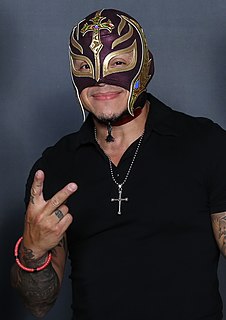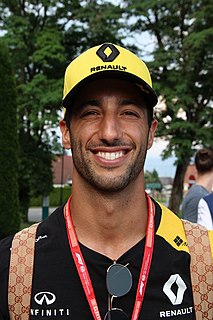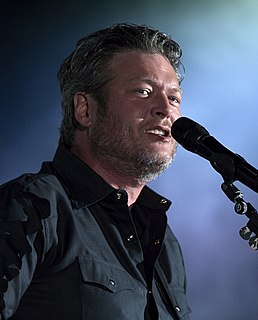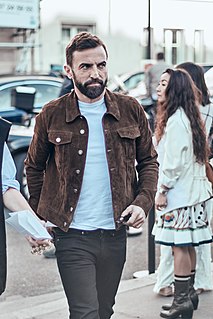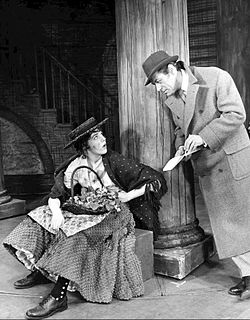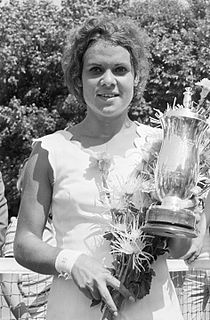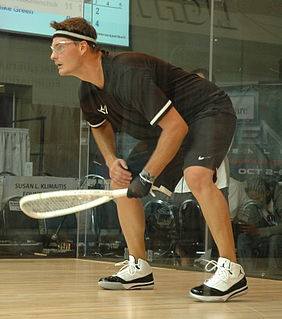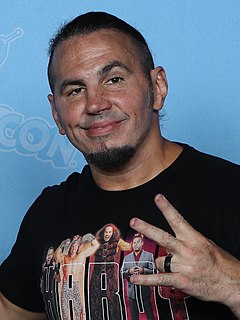A Quote by Rey Mysterio
Sometimes when I get asked by younger wrestlers, 'Do you have any advice for me? What do you think you can help me on?' and I tell them I think the best advice is to try and outdo yourself. Always be unique, always be creative. I think that was part of my success. I never wanted anybody to be on top of me. I always wanted to be number one.
Related Quotes
I wanted to be an actor ever since I was five. My grandparents - my mom's parents in New York - were stage actors. I think indirectly I wanted to do it because of them. My grandfather would tell me stories about Tennessee Williams and actors he worked with in New York. He had such a respect for acting and such a love for storytelling about that world. I grew up hearing him tell tales of it.They were never encouraging me or discouraging me to take part. They were always feeding me with theater.
When my parents realized that what I liked was fashion, they gave me good advice. I remember my father telling me that I should try to do an internship. They never said, "This is a world we don't know; it might be something strange," or "That is not serious," or things like that. They always said, "Try. We'll help you. We'll send drawings to people if you want. We'll write letters for you." What I'm very thankful for is they never made me think that something was impossible. They were really, really supportive. They are still.
I always try to say what I'm thinking, what I'm feeling, and without fear of what others will say or think, and that's how I've always lived. Sometimes, this has ended up hurting me, and other times, it has helped me, but I think you can never forget who you are, and I've always been myself, and that one of the things I'm most proud of.
I think, for me specifically when it comes to music, I don't think that I need any persuading to think about it. It's always kind of in the back of your mind and - but I think it's part of who I am and always will be, I mean, in a very cellular way. When you grow up doing, you know, one thing, I think you get to this place where you want to try new things. And I do think that we live in the type of world where people get comfortable with you in one way, and so seeing you in a different way, it takes some time.
And Paul Moravec, not being a theater person, would always trust me when I said things that I am like, "you're going to need another 10 seconds of music year to get them across the stage." But I always knew that the people were going to be coming to hear his music of which my words are going to be a part. It was clear that he wanted to go and direction A., and I wanted to go and direction B. We would've gone and direction A. That's the most important piece of advice I can give to anybody who finds themselves in an opera, or musical comedy situation like that.
It's something I've always wanted - to be known as an Australian. When I was younger I was always referred to as an Aboriginal tennis player. Now I think the award means that I have been recognised as an entertainer and that makes me happy... It's given me probably as big a kick as winning Wimbledon.
Racquetball was always number one but when our first child was born things I thought I cherished weren't as important. You put yourself in a position to win, but now you're extra careful. Because I never wanted my kids to see me losing. I wanted them to remember me winning...thought that would be cool.
Actually, I think you have to know that whatever advice you give, they may not take it. The priority should be on keeping the friendship rather than giving the best advice. Your best advice is usually, 'Walk away from him! Tell him you never want to see him again!' But if you are dealing with someone still in love, nothing you say can change their feelings. All you can do is be there for them and pick them up every time they get hurt. Until, that is, they are ready to move on for themselves.
